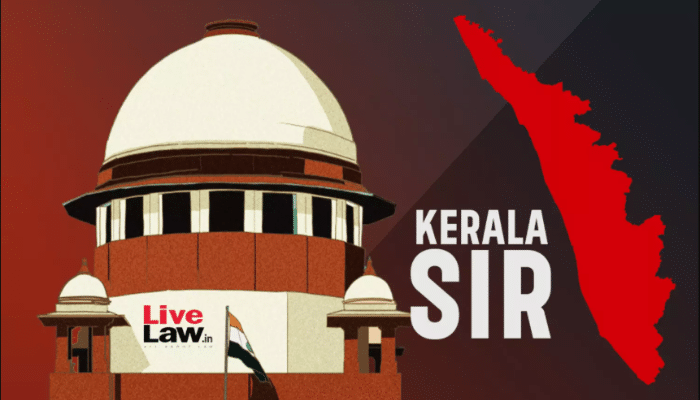The Kerala government has approached the Supreme Court seeking a delay in the Special Intensive Revision (SIR) of electoral rolls. The state says it cannot manage the SIR and the local body elections at the same time. It also says the overlap puts heavy pressure on government staff and threatens the smooth conduct of the polls. The government filed the plea under Article 32 of the Constitution, which allows citizens and states to seek constitutional remedies directly from the Supreme Court.
What Is the Special Intensive Revision (SIR)?
The SIR is a detailed verification of voter lists. Officials visit homes and check each entry in the electoral roll. They add new voters, remove ineligible names, and correct errors. The Election Commission runs revisions often, but the SIR is more demanding because it covers every household.
In Kerala, the SIR must finish by December 4. The draft voter list is set for publication on December 9. This date clashes with the first phase of the local body elections.
Why the Government Wants a Postponement
The government says the administration does not have enough staff to handle both tasks. The local body elections need a huge number of workers. A LiveLaw report notes that the polls require:
- 1,76,000 polling staff
- 68,000 security personnel
- 25,668 workers for SIR duties
Officials say this workload affects routine administration and places extreme pressure on teachers, clerks, and field officers. They fear errors in the voter lists and delays in election preparations if both activities continue together.
Concerns Raised by Political Parties
The Indian Union Muslim League (IUML) filed a similar plea on November 17. IUML leader P.K. Kunhalikutty said the SIR should not be done in a rush. He stressed the need for care and transparency during the process.
The Congress party has also raised objections. Both IUML and Congress say Booth Level Officers (BLOs) face long working hours because of the overlapping tasks. They also referred to the recent death of a BLO in Kannur. Party leaders claim heavy work pressure played a role in the incident. These concerns have increased public debate about the timing of the SIR.
What Happened in the High Court
Before moving to the Supreme Court, the Kerala government had approached the High Court. On November 13, the High Court advised the state to take the matter to the Supreme Court because similar petitions were already being heard there. This allowed all cases to come under one bench for coordinated hearing.
Election Commission’s Role
The Election Commission of India (ECI) has not yet given a clear position on the matter. The ECI usually follows strict timelines to protect the accuracy of voter lists. The court will consider whether a delay in the SIR will affect this schedule. The outcome can influence how such revision drives are handled in other states during election periods.
What the Supreme Court Will Decide
The petitions are now before a bench of Justices Surya Kant and Joymalya Bagchi. The court will examine a few key questions:
- Can the administration handle the SIR and local polls together?
- Does the heavy workload affect the quality of the SIR?
- Will a delay affect the election cycle of the state?
- Should the Election Commission adjust the schedule?
The bench will take up the case again on November 26. The court may allow a temporary pause on the SIR, order a modified schedule, or permit both activities to continue with safeguards.
Why This Issue Matters
The matter is important for Kerala because accurate voter lists and smooth elections form the base of local governance. Local body polls decide leadership in panchayats, municipalities, and corporations. These bodies run essential services like water supply, waste management, health programs, and local development projects. Any strain on election management can slow down these services.
The outcome will also matter for thousands of government workers who carry out election duties each year. Their workload and safety are important concerns. A clear ruling from the Supreme Court may help set guidelines for future revision drives across India.
